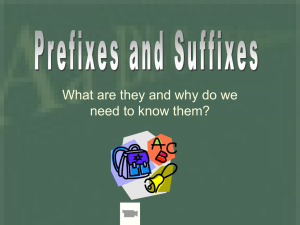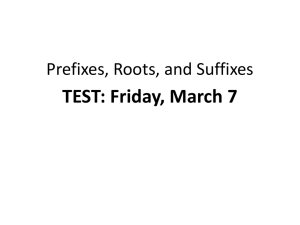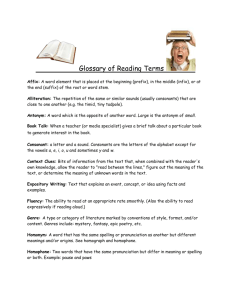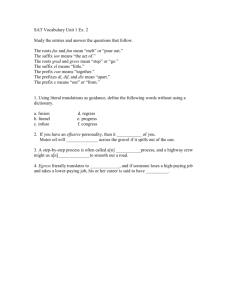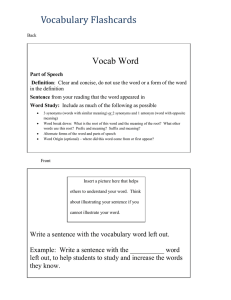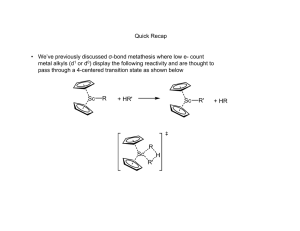Basic Terminology in Etymology: The ones not 1.Antonym:
advertisement
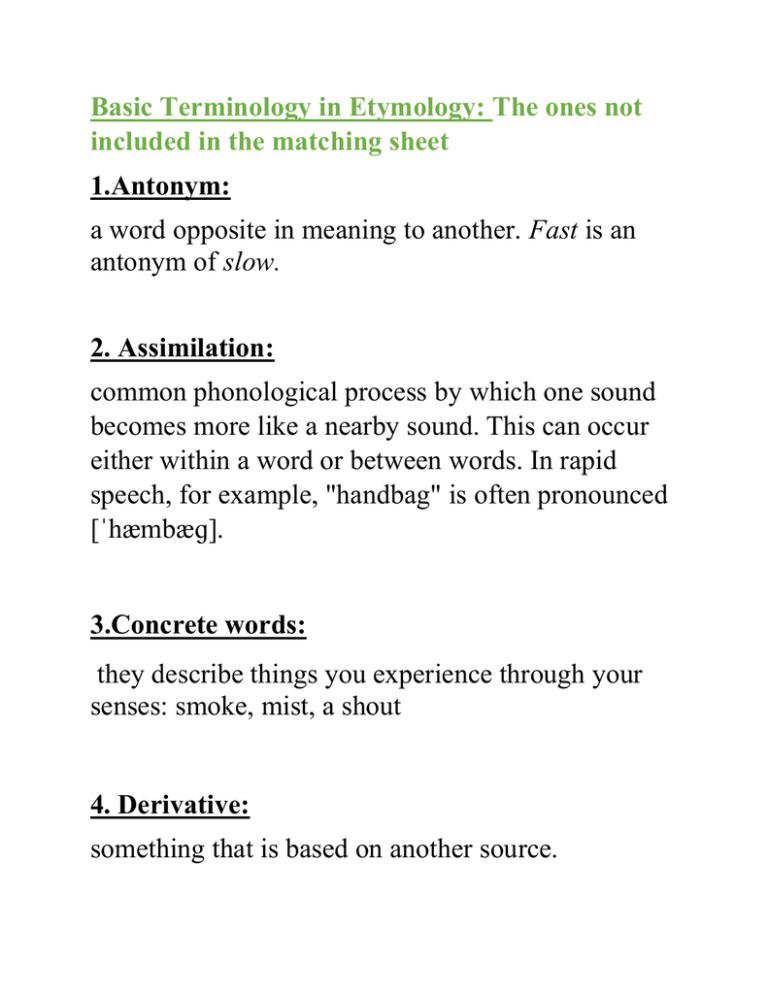
Basic Terminology in Etymology: The ones not included in the matching sheet 1.Antonym: a word opposite in meaning to another. Fast is an antonym of slow. 2. Assimilation: common phonological process by which one sound becomes more like a nearby sound. This can occur either within a word or between words. In rapid speech, for example, "handbag" is often pronounced [ˈhæmbæɡ]. 3.Concrete words: they describe things you experience through your senses: smoke, mist, a shout 4. Derivative: something that is based on another source. 5. Dialect a particular form of a language that is peculiar to a specific region or social group 6. Diminutive Grammar. pertaining to or productive of a form denoting smallness 7. Suffix something added to the end of something else. 8. Dissimilation the act of making or becoming unlike. Phonetics. the process by which a speech sound becomes different from or less like a neighboring sound, as pilgrim [pil-grim] /ˈpɪl grɪm purple [pur-puh l] /ˈpɜr pəl or disappears entirely because of a like sound in another syllable, as in the pronunciation [guhv-uh-ner] /ˈgʌv ə nər/ for governor. 9. Etymology the derivation of a word. 10. Figurative Word 1.departing from a literal use of words; metaphorical: 2. (of an artist or work of art) representing forms that are recognizably derived from life. 11. Homonym 1. a word pronounced the same as another but differing in meaning, whether spelled the same way or not, as heir and air; a homophone 2. a word that is both a homophone and a homograph, that is, exactly the same as another in sound and spelling but different in meaning, as chase “to pursue” and chase “to ornament metal.”. Dictionary and Thesaurus Packet Due March 14 12. Informal Language Informal language is language use characterized by spontaneous speech in situations that may be described as natural or "reallife," and the use of a "low” dialect or language in preference to a “high” one. 13. Metathesis Metathesis is the re-arranging of sounds or syllables in a word, or of words in a sentence. Most commonly it refers to the switching of two or more contiguous sounds, known as adjacent metathesis. foliage > **foilage cavalry > **calvary 14. Modify make partial or minor changes to (something), typically so as to improve it such as adding and deleting letters or changing meaning. 15. Philology the branch of knowledge that deals with the structure, historical development, and relationships of a language or languages. 16. Onomatopoeia the formation of a word from a sound associated with what is named (e.g., cuckoo, sizzle). 17. Prefix a word, letter, or number placed before another: 18. Root-Base Word Roots are the base elements of a word that convey the basic meaning of the word. So if you take words that you use every day, like the word reaction, you will notice that the root or base word within the word "react" is the word "act." When simplified further, you can easily see that: The word "act" refers to something that you do or how you perform or behave. The prefix of the word reaction is simply "re." The prefix in its simplest form means back or again. The suffix of the word reaction is simply "ion," and it is this suffix that can turn just about any word into a noun. 19. Suffix a morpheme added at the end of a word to form a derivative, e.g., -ation, -fy, -ing, -itis. 20. Slang the jargon of a particular class, profession, etc. 21. Synonym a word having the same or nearly the same meaning as another in the language, as happy, joyful, elated.
